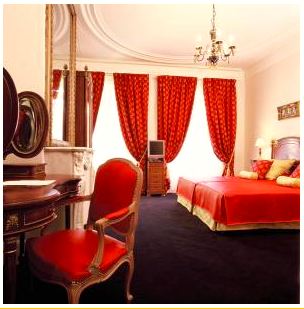France News: French Socialists Make History, Hollande Expected to Win, Euro Economic Crisis
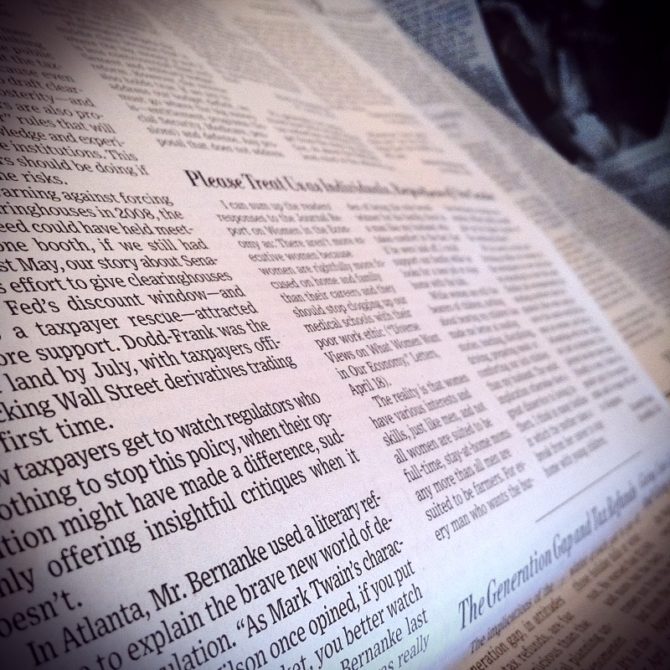
- SUBSCRIBE
- ALREADY SUBSCRIBED?
BECOME A BONJOUR PARIS MEMBER
Gain full access to our collection of over 5,000 articles and bring the City of Light into your life. Just 60 USD per year.
Find out why you should become a member here.
Sign in
Fill in your credentials below.
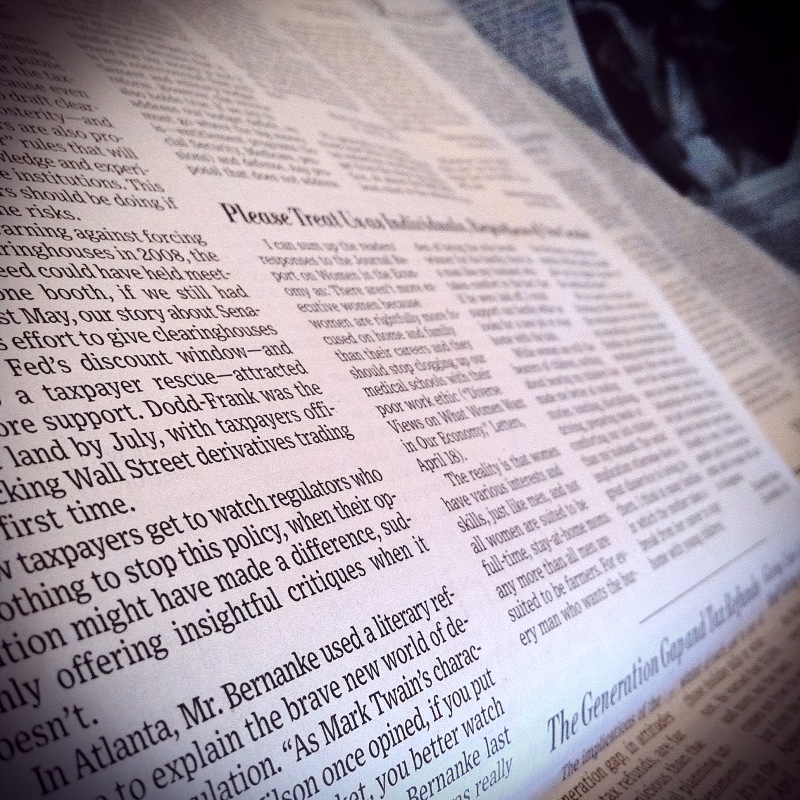 Strong voter turnout for first ever French Socialist primary elections
Strong voter turnout for first ever French Socialist primary elections
As the 2012 Presidential election approaches in the spring, the French Parti Socialiste (PS), Socialist Party, is closing one of the historic chapters in French politics: a political primary. This may seem insignificant in the United States, where Americans are well acquainted with and accustomed to the Republican and Democratic political primaries to choose one candidate for each party to be represented in the general election. In France, however, this is a new practice and currently only adopted by the Socialists. This is the first time it’s been done in France.
Given the current context, however, with center-right President Nicolas Sarkozy looking to be the only candidate to represent his UMP Party, and many politicians on the left aiming to take the presidency in 2012, it perhaps should not be as surprising for a party to want to choose the candidate who may have the best chances at winning the general election.
So, much to the annoyance of the UMP and other conservative parties, the Socialists have been gaining extensive media attention and also popular support during this political primary season. The first round was last Sunday, October 9, with several candidates vying for the top spot. There was a very strong voter turnout.
Hollande expected to win Socialist vote today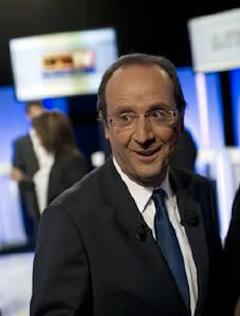
Former Socialist party head François Hollande came in first place (39%) followed by current party head and Mayor of Lille Martine Aubry (30%). Next was a bit of a surprise candidate, the “third man”: Arnaud Montebourg at 17%. What was surprising is the pitiful performance (7%) of Ségolène Royal, who was the party’s candidate in the 2007 elections. You can see analyzed results here with a great graphic.
Now with the second and decisive round set for today, François Hollande is predicted to win the party’s nomination.
What an irony this could be: Royal’s ex-partner is François Hollande who now is set to win the party’s nomination five years later. She even has come out to support him after her defeat. How symbolic.
What helps certainly is Arnaud Montebourg’s vocal support for Hollande in the final round. Although he did not specifically call on his supporters to vote for Hollande, chances are they will follow his lead.
In any case, the Socialists will have to rally behind the chosen candidate building up to the general elections in the spring. There is a feeling in the air and strong motivation to make Sarkozy a one-term president. We will have to see if the Socialists and other parties can do that.
For more on the Socialist Party and the primary, please refer to center-right Le Figaro, center-left Nouvel Obs and left Libération. We’ll of course be covering the political action here as well at BonjourParis.
François Hollande is thought to appeal to a wide cross-section of the electorate.
European economy
In other news, the European economy continues to show worrying signs. As the S&P lowered Spain’s credit ratings, the G20 Finance Ministers were meeting in Paris to discuss solutions to the Eurozone debt crisis. Here is some background on the crisis and at the Economist.
As France 24 reports, “Europe is scrambling to deal with fears that a default by Greece—and possibly other European nations—would send shock waves through the continent’s financial and banking system. European officials have already warned that banks are likely to lose more than the 21 percent on Greek sovereign bonds already agreed on, and that those who fail to build up core capital buffers will be forced to accept public funds to shore up their balance sheets.”
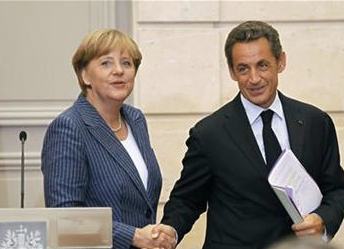 German Chancellor Angela Merkel is pushing for a financial transaction tax to help fund efforts, and came out criticizing those countries who are opposed to this tax—such as the US and UK (though not by name). “It is not possible that those outside the eurozone who are asking Europe to act are at the same time refusing a financial transaction tax,” she said.
German Chancellor Angela Merkel is pushing for a financial transaction tax to help fund efforts, and came out criticizing those countries who are opposed to this tax—such as the US and UK (though not by name). “It is not possible that those outside the eurozone who are asking Europe to act are at the same time refusing a financial transaction tax,” she said.
Adding to worries is an analysis by Goldman Sachs saying that European bank stress tests could reveal up to 300 billion euros necessary to inject into banks from Europe’s rescue fund, the European Financial Stability Facility (EFSF).
Next up on the ministers’ agenda: an EU Summit in Brussels October 21 to 23 and a G20 leaders summit in Cannes. The hope is that a final plan is agreed upon by then. Though judging from reports, Europe may be making progress on a plan.
The G20 finance ministers will have much to discuss. French and German finance ministers Friday said they have made progress on delivering a comprehensive package to stabilize the euro zone. Meanwhile the cost of the collateral Greece is expected to provide its creditors has zoomed up. Charles Forelle reports live from Paris.
Michael Barrett is a Paris-based communications consultant, freelance translator and English teacher who also curates the American Expat in France blog. Please click on his name to read his profile and to view more of Michael’s stories published at BonjourParis.
Do you have a story to share with our readers or a story suggestion? Here’s how you can submit an idea or article.
Save 15% on business-class international flights between Paris and New York on OpenSkies, the airline for Smart Flyers.
Subscribe today, save 15% for up to 4 travelers…click here.
Shop direct at Amazon.com (and merci for using our direct link—your support allows us to publish BonjourParis)
and check our Francophiles Favorites loaded with French-themed items for travelers and Francophiles. Choose your category at the right edge, then click the category’s last page number to browse the latest listings.
Short-cut to our 100 TOP SELLING ITEMS (please wait for widget to load—updated daily)




Versailles: A Biography of a Palace [March 2010]
Five Hundred Buildings of Paris [September 2010, arrondissement-by-arrondiseement photographs & more]
Art + Paris Impressionists & Post-Impressionists: The Ultimate Guide to Artists, Paintings & Places in Paris & Normandy [July 2011; beautifully illustrated; includes a tour of the Opéra]
Paris Secrets: Architecture, Interiors, Quartiers, Corners [September 2011]
Only Booking.com, a Priceline company, offers you the Best Price Guarantee:
Left Bank hotels near the Eiffel Tower:
Photos left to right:
Hôtel Valadon Colors, 2-star, Paris 7th, Left Bank, separate family/group cottage available, rated 8.3 of 10
Hôtel Verneuil Saint-Germain, 3-star, Paris 7th, Left Bank, rated 8.4 of 10
Hôtel de Latour Maubourg, 3-star, Paris 7th, Left Bank, rated 8.6 of 10
*** Bookmark this direct link to Booking.com
for your Best Price Guarantee.
 Paris Shuttle is a leading provider of Paris airport transfers…save up to 30% by booking your airport transfers in advance online.
Paris Shuttle is a leading provider of Paris airport transfers…save up to 30% by booking your airport transfers in advance online.



